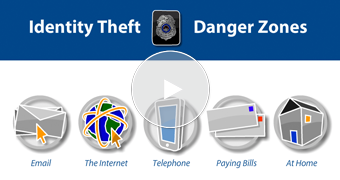If you have been impacted by a data breach, ensure your identity is safeguarded to the best extent possible.
- Close any bank accounts that may have been impacted and open new ones.
You can do this at one of our financial centers or on our website at patch.midpennbank.com. Make us aware of any outstanding items and update any direct deposit, payment or transfer information.
- Place a fraud alert on your credit file by contacting one of the three major credit bureaus.
You will only need to contact one of the credit bureaus to place a fraud alert on your file for all three credit bureaus. This will tell creditors to take additional steps to verify your identity prior to granting credit. To place the fraud alert, contact any one of the major credit bureaus:
Equifax
www.equifax.com
800-525-6285 (Fraud Hotline)
800-685-1111 (Report Order)
P.O. Box 740250
Atlanta, GA 30374
Experian
www.experian.com
888-397-3742 (Fraud Hotline)
888-397-3742 (Report Order)
P.O. Box 9556
Allen, TX 75013
TransUnion
www.transunion.com
800-680-7289 (Fraud Hotline)
800-916-8800 (Report Order)
P.O. Box 6790
Fullerton, CA 92634
- Inform the IRS of the potential for fraudulent activity under your name.
Inform the IRS so they are able to flag your account to identify questionable activity. To do this, please visit http://www.irs.gov/uac/Identity-Protection
- Consider obtaining an IRS Electronic PIN.
If you do not already have an IRS Electronic PIN, consider obtaining one to verify your identity when you e-file. Visit http://www.irs.gov/Individuals/Electronic-Filing-PIN-Request or call 1-866-704-7388.
- Pull your credit report.
You are entitled to one free credit report from each of the three credit bureaus annually – a helpful tool for identifying fraud. You may order it by phone at 1-877-322-8228 or by visiting www.annualcreditreport.com. When reviewing your credit report for fraudulent activity, look for information that is inaccurate or incomplete, such as accounts that do not belong to you, addresses of places where you did not live, names of employers you did not work for, or information that should no longer be on your credit report, such as a bankruptcy that is more than ten years old.
- Carefully review your account statements on a regular basis and take action if you ever detect fraudulent activity.
Report any fraudulent activity that may have been committed and document it. Note who you called, the actions you took and the results.

